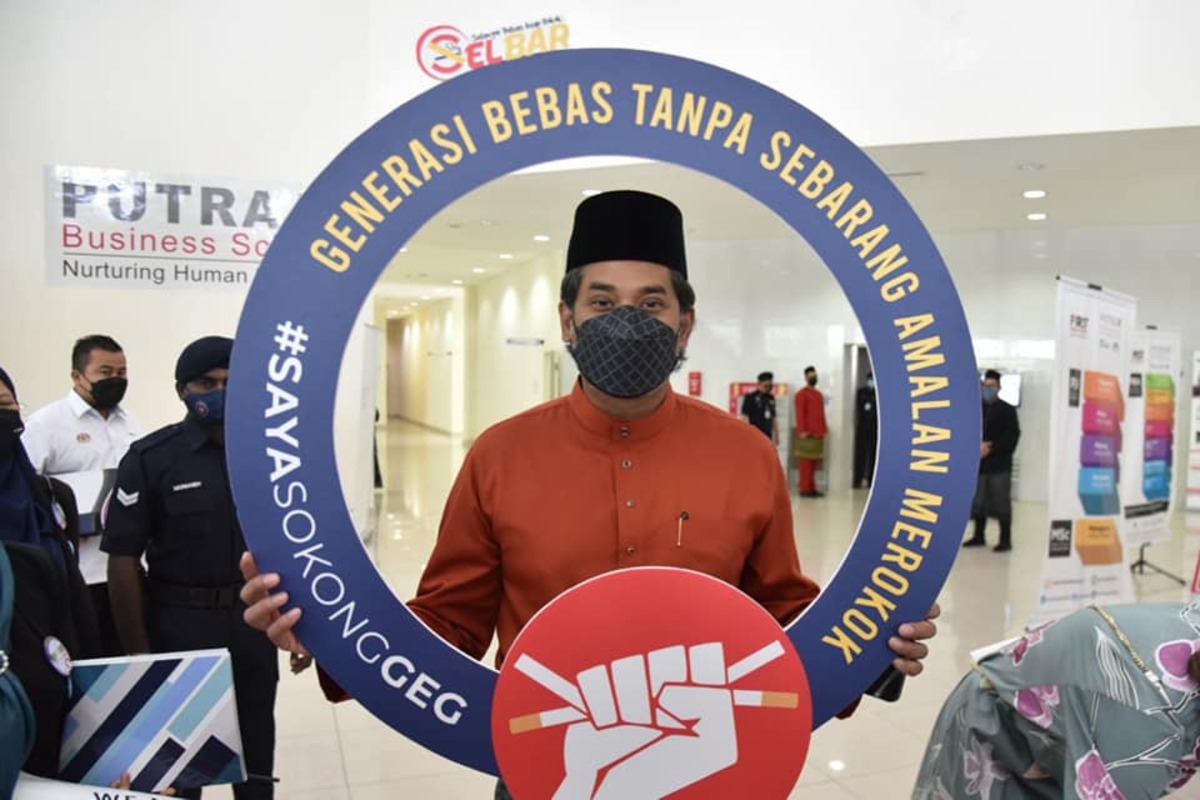Before the Covid-19 pandemic, most health-related legislations were routinely passed by Parliament, without much fuss or debate, as health was seen as apolitical and politicians generally trusted in technocrats at the Health Ministry.
When the pandemic hit, elected representatives across political parties realised for the first time the need to evaluate the impact of proposed health laws on their constituents, instead of blindly accepting advice from technocrats who may not necessarily be aware of realities on the ground.
At a PKR event in Ampang last Friday, the party showed a powerful election campaign video (see from minute 1:14:09) that criticised the management of Covid-19, depicting immense suffering during lockdowns and the suppression of democracy with the suspension of Parliament. Malaysia’s Covid-19 death rates are among the highest in Asia per capita.
Last December, then-Health Minister Khairy Jamaluddin pushed for amendments to the Prevention and Control of Infectious Diseases Act 1988 (Act 342), using a punitive and, possibly, cruel approach to manage an epidemic caused by a respiratory virus despite poor health literacy in the country. Then-Prime Minister Ismail Sabri Yaakob later killed the Act 342 amendment bill in March.
So, what does infectious disease have to do with tobacco control?
While Malaysians are generally conflicted about civil liberties like freedom of speech, which is often seen as “political”, depending on who makes contentious comments, the management of the pandemic appears to have triggered so-called “apolitical”, or non-partisan, opposition to public health measures beyond infectious disease outbreaks.
Although certain advocates believe that health should be “apolitical” – even though politics is simply the allocation of resources – it is precisely the bipartisan objection to Khairy’s proposed generational end game (GEG) that effectively killed off the recent effort to pass the Control of Tobacco Product and Smoking Bill 2022.
Khairy and anti-tobacco activists wrongly believed that no one would oppose the move to prohibit the sale to and use of tobacco and vape products for generations born from 2007. After all, who could possibly support smoking and smokers?
However, the disastrous outing of the Act 342 amendment bill likely triggered deep reservations among MPs from the 14th Parliament across the aisle about approving further perceived intrusions into personal life.
When Khairy failed to table the revised tobacco bill for debate on October 6 despite expecting to do so that day, it was clear that Ismail Sabri’s administration and likely Umno or Barisan Nasional (BN) backbenchers did not support the government bill, even though they avoided publicly voicing objections.
While Pakatan Harapan (PH) and other Opposition MPs were previously vocal in expressing their concerns with wide enforcement powers proposed in the bill, constitutional issues, violations of personal freedoms, economic impact, and how a generational tobacco ban could operate, the onus was on Ismail Sabri’s government to support and, hence, pass the tobacco bill.
PH Youth unveiled yesterday a slew of proposed health care reforms in its manifesto for the 15th general election, including the formation of a Health Service Commission, but omitted the GEG and tobacco control.
The tobacco and vape GEG will not likely feature in BN’s or Perikatan Nasional’s election manifestos either.
Some politicians have already used the proposed generational smoking ban as a bogeyman in the run-up to the national polls, such as incumbent Kota Kinabalu MP Chan Foong Hin, who cited the GEG as a reason why people should vote in GE15: “You cannot let those you do not trust decide your destiny.”
As the minister and legislator, Khairy was responsible to get public and political buy-in for a radical proposal to prohibit smoking for future generations in a country where nearly half of adult men aged 20 and above smoke.
Yet, no town hall meetings were organised with the general public, including with adolescents and teenagers born from 2007 who cannot vote in GE15. Khairy also did not share the draft tobacco bill with the health, science and innovation parliamentary special select committee from the 14th Parliament before formally tabling it in the Dewan Rakyat.
While most of the blame can be placed on Khairy’s shoulders, strident anti-tobacco activists and medical practitioners were also responsible for poor communications of the GEG. Instead of addressing genuine concerns with the potential erosion of privacy and civil liberties, they tarred all critics as being funded by Big Tobacco.
Hubris killed the GEG.
New Zealand was able to propose a generational smoking ban because its smoking prevalence is only 10.9 per cent, nearly half of Malaysia’s 21.3 per cent. Even then, New Zealand’s proposed prohibitions only target retailers, not smokers.
Khairy’s approach to tobacco control could be perceived to have been dogmatic, punitive, and moralistic. The GEG was an attempted shortcut to slash Malaysia’s smoking rate to 5 per cent by 2040 (a decade behind the global 2030 goal).
Whoever forms the government of the day will not likely touch the poisoned chalice of the tobacco bill throughout the next term, or even the next two terms.
Worse, Khairy’s combined legislative failures to pass the politically problematic tobacco and Act 342 (amendment) bills could potentially affect tobacco control as a whole – even if future proposals by the next government exclude the GEG – and public health measures for future pandemics.
The killer blow is that any future opposition to health policies and legislations perceived to affect people’s personal lives will likely be non-partisan in nature, making it that much harder – or even impossible – to undertake painful but crucial health care reforms.
This is the unfortunate legacy that Khairy left behind with the GEG.

Boo Su-Lyn is CodeBlue editor-in-chief. She is a libertarian, or classical liberal, who believes in minimal state intervention in the economy and socio-political issues.








